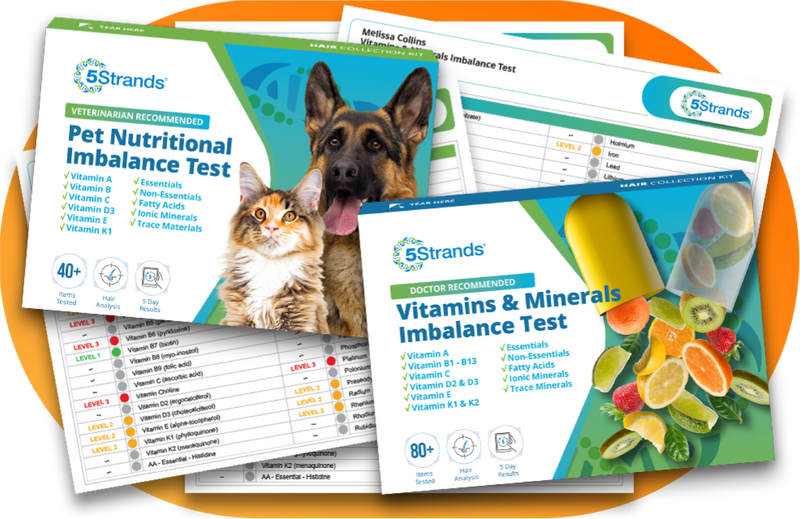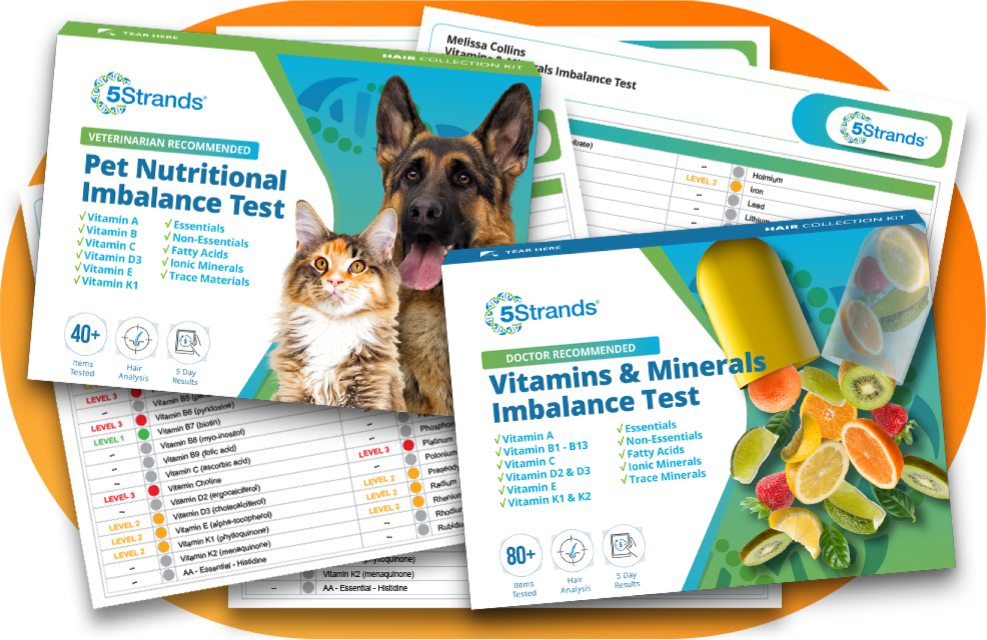ACCESS YOUR RESULTS ANYWHERE YOU GO
Download our free mobile app to view your results while cooking, traveling, grocery shopping, or dining out!



Consuming too little food can deprive your body of the essential nutrients required to function optimally and maintain overall well-being.

Intolerances to certain foods can trigger inflammation, which may interfere with the body’s ability to effectively absorb nutrients.

Relying on low-quality foods or supplements may provide calories without delivering the necessary nutrients to support your body’s health and vitality.
The body absorbs and processes nutrients best when taken in the form of whole foods. When consuming enough whole foods is not possible, it is best to supplement with organic vitamins and minerals as the body often has trouble absorbing the synthetic version.
Synthetic vitamins and minerals are made in a lab from chemical compounds. This does not include "Whole Food Supplements" which are made from concentrated and dehydrated whole foods. Supplements that list nutrients individually (ex: Vitamin C) or by their chemical name (ex: Ascorbic Acid) are almost always synthetic.


Once you receive your test results, you can implement a personalized elimination plan to manage you or your pet’s symptoms.

Spot Nutrient Absorption Issues: Your test shows how well your body absorbs nutrients and how food intolerances might affect this.

Choose Natural Supplements: Opt for whole food-based or plant-based supplements when possible - they’re easier for your body to absorb.

Understand the Difference: Unlike blood tests, this test reveals how efficiently your body uses nutrients, not specific levels.

Stay Proactive: Catch imbalances early before they turn into bigger health concerns.

Prioritize Diet & Quality: Focus on whole, non-intolerant foods and natural supplements for better nutrition.

Identify Processing Issues: Learn which metals and minerals your body struggles to process and eliminate when exposed.

Investigate Exposure: Use the report to review your diet, lifestyle, and environment for possible sources of these substances.

Reduce Exposure: Take practical steps like cutting back on toxic foods, using non-chemical household products, improving air quality, and adding air purifiers.

Support Natural Detox: Help your body cleanse naturally with filtered water, a balanced diet, regular exercise, and non-toxic products.

Stay Proactive: Regularly assess your environment and consult with healthcare professionals to optimize your health and address any concerns.
Chosen by Over 345,000 Health-Focused Individuals
Your cart is currently empty
Regular price
$196.00
Sale price
$136.00
Regular price
$133.00
Sale price
$123.00
Regular price
$86.00
Sale price
$83.00
Regular price
$146.00
Sale price
$123.00
Regular price
$63.00
Sale price
$56.70
Regular price
$73.00
Sale price
$63.00
Regular price
$196.00
Sale price
$136.00
Regular price
$133.00
Sale price
$123.00
Regular price
$86.00
Sale price
$83.00